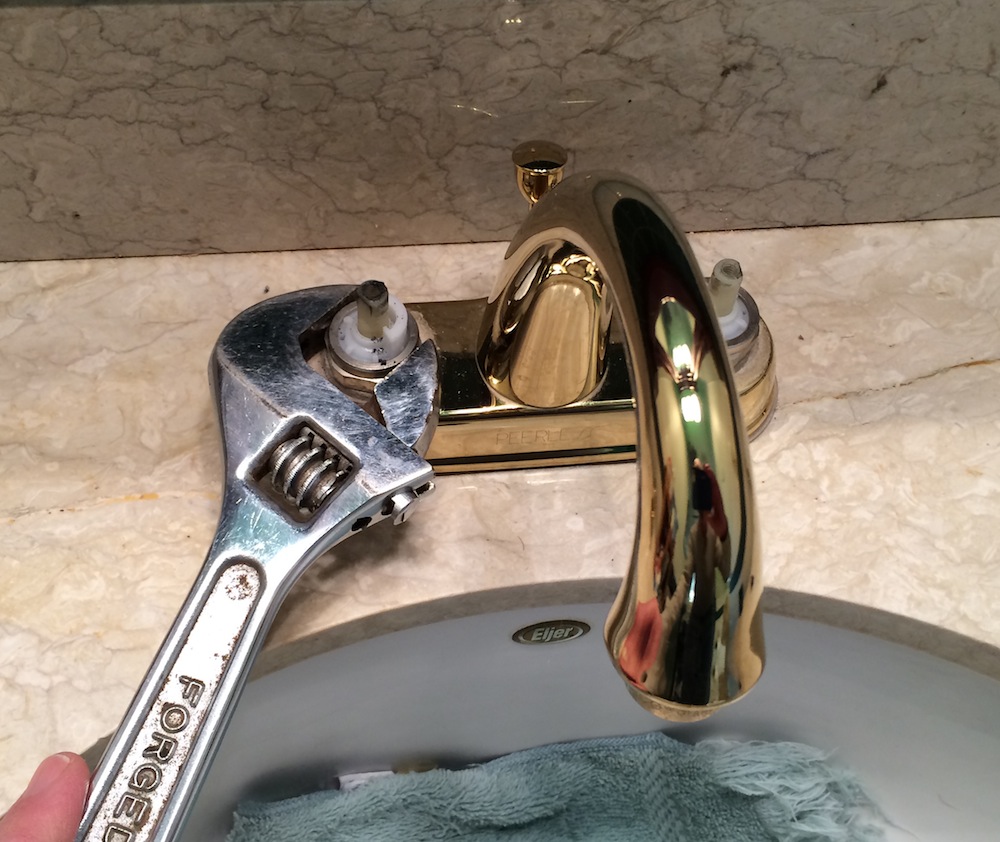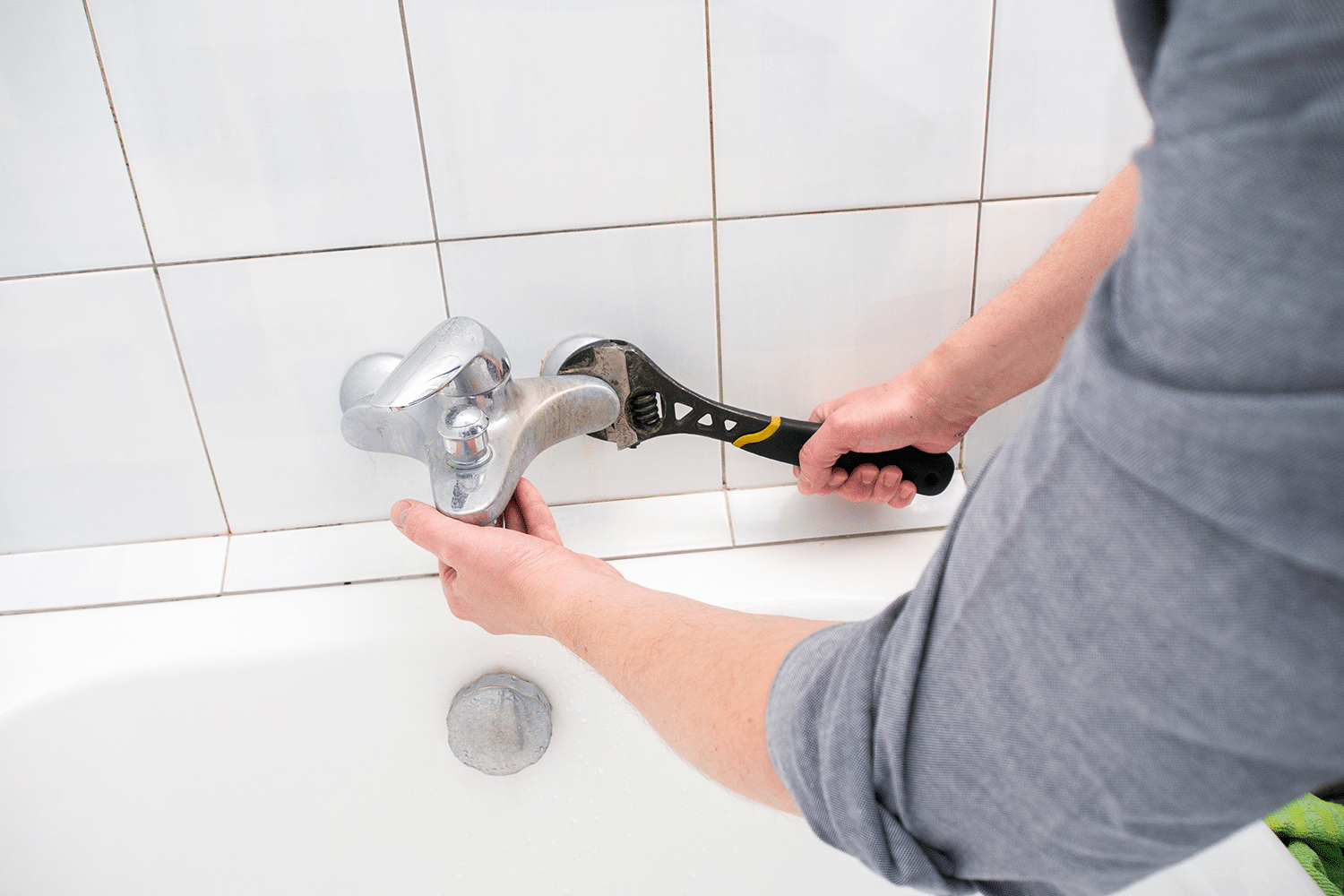My Reasons Behind Dealing with a Malfunctioning Faucet
My Reasons Behind Dealing with a Malfunctioning Faucet
Blog Article
How do you feel in regards to Why Are My Faucets Dripping (And Can I Fix It Myself)??

Trickling taps could appear like a small hassle, however their impact goes beyond just the inconvenience of the noise. From wasting water to incurring unneeded monetary expenses and health and wellness risks, ignoring a trickling tap can result in various effects. In this post, we'll explore why it's important to address this usual family issue promptly and properly.
Waste of Water
Environmental Influence
Trickling faucets add substantially to water wastage. According to the Epa (EPA), a single faucet trickling at one drip per second can throw away more than 3,000 gallons of water each year. This not just strains water sources however likewise affects ecosystems and wild animals dependent on them.
Step-by-Step Overview to Repairing a Dripping Tap
Tools Called for
Before trying to take care of a dripping tap, collect the required tools, consisting of an adjustable wrench, screwdrivers, substitute parts (such as washing machines or cartridges), and plumber's tape.
Usual Faucet Issues and Their Solutions
Recognize the kind of faucet and the specific problem triggering the drip. Typical problems consist of worn-out washers, corroded valve seats, or faulty O-rings. Refer to supplier instructions or online tutorials for step-by-step advice on fixings.
Financial Expenses
Boosted Water Bills
Beyond the ecological influence, leaking faucets can pump up water bills considerably. The collected wastage with time equates into higher energy costs, which might have been stayed clear of with prompt fixings.
Potential Building Damages
In addition, prolonged trickling can result in harm to fixtures and surfaces surrounding the tap. Water accumulation can trigger discoloration, deterioration, and also architectural problems if left neglected, leading to added repair service costs.
Wellness Issues
Mold and Mold Growth
The continuous presence of wetness from a dripping faucet creates an excellent environment for mold and mold development. These fungis not only jeopardize indoor air high quality but likewise present health and wellness dangers, particularly for individuals with breathing conditions or allergies.
Waterborne Conditions
Stationary water in trickling taps can come to be a breeding place for bacteria and various other virus, enhancing the risk of waterborne illness. Contaminants such as Legionella germs flourish in stationary water, possibly bring about major diseases when ingested or breathed in.
DIY vs. Professional Fixing
Pros and Cons of DIY Repair Work
While some may attempt to deal with a dripping tap themselves, do it yourself fixings feature their own set of obstacles. Without appropriate knowledge and tools, do it yourself attempts can exacerbate the issue or bring about insufficient repair services, prolonging the trouble.
Benefits of Employing an Expert Plumber
Working with a professional plumber makes sure that the underlying root cause of the dripping faucet is attended to efficiently. Plumbings possess the experience and devices to diagnose and repair tap issues successfully, saving time and lessening the risk of more damages.
Environmental Responsibility
Specific Payment to Preservation
Taking responsibility for dealing with dripping faucets straightens with broader initiatives towards water conservation and environmental sustainability. Every person's activities jointly make a considerable effect on maintaining precious resources.
Lasting Living Practices
By focusing on prompt repair services and taking on water-saving practices, individuals add to lasting living practices that profit both present and future generations.
Preventive Measures
Routine Upkeep Tips
To stop trickling faucets, carry out routine maintenance such as cleaning up aerators, evaluating for leaks, and replacing worn-out components promptly. Furthermore, think about setting up water-saving gadgets or updating to extra reliable components.
Importance of Prompt Repair Works
Attending to trickling taps as quickly as they're seen stops additional water waste and prospective damage, eventually saving both water and money in the long run.
Impact on Building Worth
Assumption of Well-Maintained Building
Keeping a residential or commercial property in good condition, consisting of resolving upkeep problems like leaking faucets, enhances its regarded worth and charm among potential buyers or tenants.
Impact on Resale Worth
Residences with well-maintained plumbing components, including faucets, command greater resale worths in the real estate market. Addressing trickling taps can contribute to a favorable perception during property examinations and negotiations.
Conclusion
Resolving a leaking faucet exceeds mere ease; it's a crucial action toward saving water, decreasing economic expenses, and safeguarding health and wellness and property. Whether via DIY fixings or expert aid, acting to fix leaking faucets is a small yet impactful way to promote accountable stewardship of sources and contribute to a much healthier, a lot more sustainable future.
How to Fix a Leaky Faucet: Step-by-Step Repair Guide
A leaky faucet may seem like a simple annoyance, but if it's not fixed promptly, that leak could cost hundreds to potentially thousands. From water damage to mold, mildew, and high water bills, even a tiny leak can be catastrophic if left unattended. Damage like this can even affect the overall value of your home, so it's important to take the right approach for leaky faucet repair. You may need the help of a plumber in some cases, but we've got a few tips you can try on how to fix a leaky faucet before calling the pros.
Four Faucet Types
When you're learning how to fix a leaky faucet, the first step is knowing what kind of faucet you're working with! There are four common types.
Cartridge Faucets
Cartridge faucets come in one- or two-handled varieties. In one-handled cartridge faucets, hot and cold water combines in a single cartridge. In the two-handled versions, hot and cold water are controlled separately and mixed in the faucet.
Ball Faucets
Ball faucets have a single lever you push up and down to adjust the pressure and rotate to change the temperature. A slotted metal ball controls the amount of water allowed into the spout.
Compression Washer Faucets
They're the oldest type of faucet, but they're still used in many homes — especially older ones. Compression faucets have two separate handles that, when turned, raise or lower the washer that seals a water valve. This valve stops water from flowing through the faucet when it is turned off.
Disc Faucets
Disc faucets rarely need to be repaired due to their maintenance-free design. The water flow is controlled by two discs — the upper one raises and lowers against a fixed lower disc, creating a watertight seal. If your disc faucet starts leaking, you may need to replace the seals or clean residue buildup from the inlets.
Fixing a Leaky Faucet
Step 1: Turn Off the Water
Whether you're learning how to fix a leaky bathtub faucet or how to fix a leaky kitchen faucet, always turn off the water supply to your working area when you're fixing a leak. The last thing you want is a flood added to your list of things to fix.
Look for the shutoff valves below your sink or around the tub and turn them clockwise to stop the water flow. If your faucet doesn't have shutoff valves, you may need to turn off the water for the whole house. Check to make sure it's off by turning the faucet on. If nothing comes out, you're ready to start the repair.
Step 2: Take Apart the Faucet
How you disassemble your faucet depends on the type of fixture you have. You can use a flathead screwdriver to remove the caps on top of the handle or handles for cartridge and compression faucets. Inside, you should see handle screws. Unscrew these with a screwdriver to remove the handle.
Disc- and ball-style faucets will typically have an inlet screw near the handle, and removing that will reveal the interior of the faucet.
Detach the Valve Stem
For cartridge- and compression-style faucets, you'll see the inner valve stem or cartridge once you remove the faucet handles. If you have a compression faucet, unscrew the brass valve stem. If you have a cartridge faucet, pull out the cartridge. If your cartridge has been in place for a while, it may require some tools or extra force to remove it due to mineral deposits.
Examine and Replace Parts
Once you've removed the parts, check them out to confirm what needs to be replaced. You may see corroded rubber washers, O-rings, stems, or cartridges. On a ball-style faucet, check the seats and springs for damage.
If you need to repair a leaky disc faucet, check the inlet and seals on the lower disc.
Once you determine what parts must be replaced, visit your local hardware store. Bring the damaged parts with you to ensure you can purchase the correct components to replace them.
Clean Valves and Faucet Cavity
If you've removed a stem or cartridge, you may notice mineral buildup in the faucet's threads. Use white vinegar to clean the valve seat by soaking it for a few minutes, then scrub it away with a soft toothbrush and rinse with warm water. You can also clean the interior of the faucet in the same way.
Reassemble the Faucet
Once your faucet is cleaned and the required parts have been replaced, it's time to reassemble it. Put the pieces back together and slowly turn the water supply back on. Doing this slowly is crucial because too much initial water pressure can damage the new hardware you've just installed.
https://homewarranty.firstam.com/blog/how-to-fix-leaky-faucet

As a devoted reader about How to Fix a Dripping or Leaky Faucet , I think sharing that excerpt was a good thing. Loved our blog? Please share it. Let another person locate it. I value your readership.
Report this page